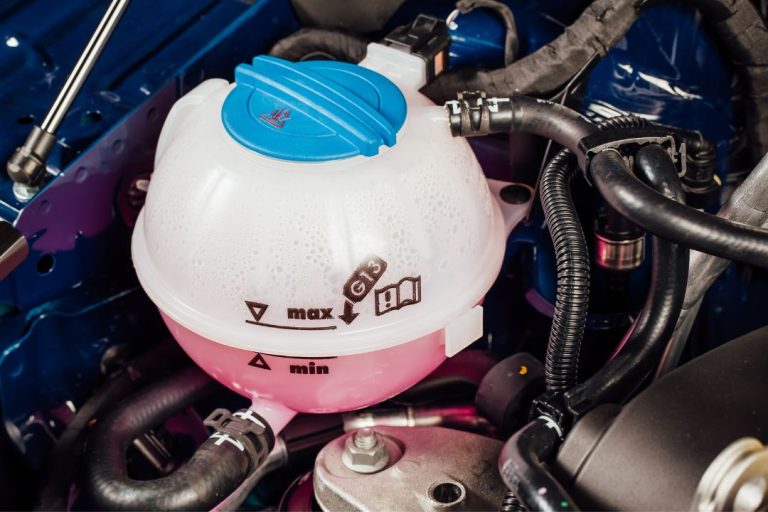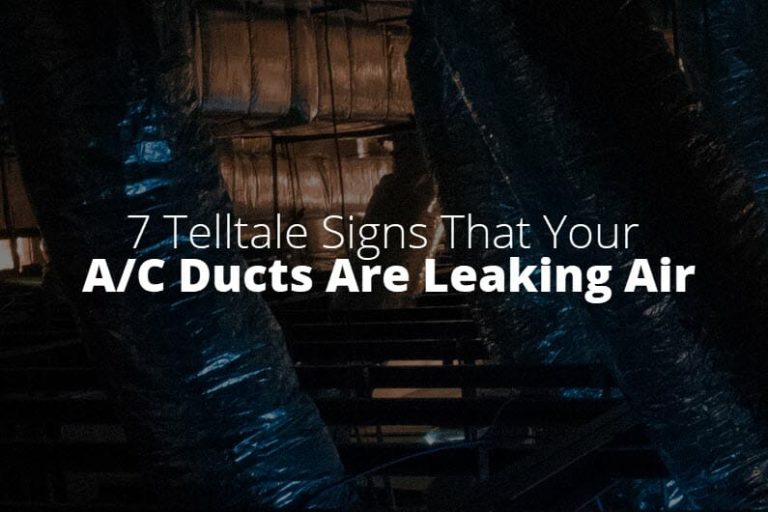Why Does My Car Sound Louder Than Usual: Unveil the mysteries
Your car may sound louder than usual due to issues with the exhaust system or a malfunctioning muffler. This could be caused by a hole or leak in the exhaust pipes or a damaged muffler, resulting in increased noise levels.
Regular maintenance checks and prompt repairs can help resolve these issues and restore the normal sound of your vehicle. Introduction (120 words): As a car owner, you might become concerned when you notice that your vehicle sounds louder than it normally does.
This change in sound can be quite noticeable and may leave you wondering what could be causing it. Well, you’re not alone. Many drivers experience this issue, and it often stems from problems with the exhaust system or muffler. These vital components play a crucial role in reducing the noise produced by your car’s engine. When they are not functioning properly, it can result in an increase in sound levels. We will explore some of the common reasons why your car might be sounding louder than usual and provide insights into how you can address these issues effectively.
Understanding The Different Types Of Car Noises
Car noises can be a cause for concern, especially when your vehicle sounds louder than usual. By understanding the different types of car noises, you can identify the source of the problem and take appropriate action to address it. Whether it’s a rattling, grinding, or unusual engine noise, this article will help you decipher why your car sounds louder than it should.
If you’ve ever been driving and suddenly noticed that your car sounds louder than usual, it can be a cause for concern. Unusual car noises are often an indication that something is not quite right with your vehicle. It is important to pay attention to these noises as they can be an early warning sign of a potential problem, and addressing the issue promptly can save you from more expensive repairs down the line. In this article, we will explore the different types of car noises you may encounter, including engine, exhaust system, suspension and steering, brake, and transmission noises. By understanding the causes behind these noises, you will be better equipped to take action and keep your car running smoothly.
Engine Noises
The engine is the heart of your car, and any abnormal noises coming from it should not be ignored. Engine noises can take different forms, including knocking, clicking, or humming sounds. These noises can be a result of various issues such as damaged spark plugs, worn-out belts, or low engine oil. Faulty engine components can lead to reduced performance and potentially even engine failure. If you notice any strange noises coming from your engine, it is important to have it checked by a professional mechanic to diagnose the problem accurately and prevent further damage.
Exhaust System Noises
Your car’s exhaust system is responsible for reducing noise and harmful emissions from the engine. However, over time, parts of the exhaust system such as the muffler, catalytic converter, or exhaust pipes may develop leaks or become damaged. This can result in loud roaring, hissing, or rattling noises coming from the exhaust. A malfunctioning exhaust system not only increases noise pollution but also poses a safety hazard as dangerous gases can enter the cabin. If you suspect an issue with your exhaust system, it is crucial to have it inspected and repaired promptly to ensure optimal performance and compliance with emission regulations.
Suspension And Steering Noises
As you drive over bumps and uneven road surfaces, you may hear squeaking, clunking, or knocking noises coming from your car’s suspension or steering system. These noises can indicate worn-out or damaged components such as suspension bushings, ball joints, or tie rods. Ignoring suspension and steering noises can result in poor handling, reduced stability, and compromised safety. It is advisable to have a professional inspect your suspension and steering system to identify the source of the noise and replace any faulty parts.
Brake Noises
Your vehicle’s braking system plays a crucial role in ensuring safe stops and optimal control. If you hear squealing, grinding, or vibrating noises when applying the brakes, it could be an indication of brake pad wear, damaged brake rotors, or a malfunctioning brake caliper. Ignoring brake noises can not only compromise your vehicle’s stopping power but also lead to further damage and more expensive repairs. It is essential to have your brakes inspected regularly and replace any worn-out or damaged components to maintain optimal braking performance.
Transmission Noises
If you notice strange noises when shifting gears or while your car is in motion, it could be a sign of transmission problems. Ticking, whining, or clunking noises may indicate issues such as low transmission fluid, worn-out gears, or a faulty torque converter. Left unaddressed, transmission issues can cause significant damage and lead to costly repairs. If you experience any unusual noises coming from your transmission, it is recommended to have it diagnosed and repaired by a qualified mechanic.
By understanding the different types of car noises and their potential causes, you can better evaluate the severity of the issue and take appropriate action. Regular maintenance and prompt repairs are key to keeping your car in optimal condition and ensuring your safety on the road. If you encounter any unfamiliar noises in your vehicle, don’t hesitate to consult with a professional mechanic to diagnose and resolve the issue promptly. Your car and your peace of mind will thank you for it.
Engine Noises: Exploring Possible Causes
When it comes to our cars, we want everything to run smoothly. So, when we hear strange noises coming from under the hood, it’s only natural to be concerned. Engine noises can be signs of issues that need to be addressed promptly to prevent further damage. In this article, we will delve into the possible causes of engine noises, helping you identify the source and guide you toward finding a solution.
Identifying The Source Of Engine Noises
Identifying the exact source of engine noise can be a challenge, but it’s an essential step in understanding and resolving the issue. Here are a few common engine noises and what they might indicate:
- Tapping or Clicking Noise: This type of noise is often associated with issues related to the valve train, such as worn-out lifters or a faulty rocker arm. It could also indicate low oil pressure or a worn-out camshaft.
- Squealing or Whining Noise: If you hear a high-pitched squeal or whine, it could be due to a loose or worn-out belt. A failing alternator or power steering pump could also cause this noise.
- Rattling Noise: A rattling noise may suggest that there is a loose component in the engine, such as a heat shield, exhaust pipe, or engine mount. It can also be a sign of excessive piston slap or worn-out bearings.
- Knocking Noise: A knocking noise is indicative of a serious issue such as worn-out rod bearings, piston slap, or a failing crankshaft. This noise should never be ignored and requires immediate attention.
Keep in mind that these descriptions are just general guidelines. It is always recommended to consult a professional mechanic to diagnose the exact cause of the noise, as they have the expertise and tools to provide a more accurate assessment.
Common Engine Noise Culprits
Now that we have highlighted some engine noises and what they may suggest, let’s delve deeper into the common culprits behind these unsettling sounds:
| Noise | Possible Cause |
|---|---|
| Tapping or Clicking Noise | Worn-out lifters, faulty rocker arm, low oil pressure, or worn-out camshaft. |
| Squealing or Whining Noise | Loose or worn-out belt, failing alternator, or power steering pump. |
| Rattling Noise | Loose component (heat shield, exhaust pipe, or engine mount), excessive piston slap, or worn-out bearings. |
| Knocking Noise | Worn-out rod bearings, piston slap, or failing crankshaft. |
Understanding these common culprits can provide insights into what might be causing the engine noise. However, it is crucial to mention that diagnosing the issue accurately requires expertise and diagnostic equipment.
Addressing Engine Noise Issues
When it comes to engine noise, prevention is key. Regular maintenance and addressing potential issues promptly can save you from costly repairs down the road. Here are a few steps you can take:
- Listen attentively: Pay close attention to any changes in the engine noise and try to pinpoint when and under what conditions the noise occurs. This information can be valuable during a mechanic’s diagnosis.
- Check fluid levels: Ensure that all fluid levels, such as engine oil, coolant, and power steering fluid, are within the recommended range. Low fluid levels can be a contributing factor to engine noise.
- Inspect belts and pulleys: Regularly inspect the condition and tension of your engine belts, as well as the pulleys they wrap around. Replace any worn-out or damaged components promptly.
- Schedule regular maintenance: Follow your vehicle’s maintenance schedule to address potential issues before they escalate. Regular oil changes, filter replacements, and inspections can help maintain a healthy engine.
- Seek professional help: If you are unsure about the cause or severity of the engine noise, it is always best to consult a professional mechanic. They can conduct a thorough inspection and provide tailored solutions.
Addressing engine noise issues promptly not only ensures a quieter ride but also helps extend the lifespan of your vehicle. By understanding the possible causes and taking proactive steps, you can enjoy a smoother and more reliable driving experience.
Exhaust System Noises: Unveiling The Culprits
Do you find your car making a louder-than-usual noise? You’re not alone! Many car owners experience this unwelcome change in their vehicle’s sound, and it can be quite alarming. However, understanding the reasons behind these noises can help alleviate worries and prevent further damage. In this article, we will focus on the exhaust system and uncover the culprits behind those mysterious sounds, examining their causes, impacts, and how to resolve these noise problems.
Causes Of Exhaust System Noises:
The exhaust system is a crucial component of any vehicle as it carries away harmful gases produced during combustion. Over time, wear and tear can lead to several issues within the exhaust system, resulting in disturbing sounds. Let’s take a closer look at the common culprits:
- Exhaust Pipe Leaks: One of the main causes of loud exhaust sounds is a leak in the exhaust pipes. These leaks can occur due to rust, corrosion, or damage caused by road debris. When there is a leak, the exhaust gases escape, creating a noticeable increase in noise levels.
- Faulty Muffler: Your car’s muffler is responsible for reducing exhaust noise. If it develops any cracks or holes, it fails to muffle the sound effectively. As a result, you may experience a louder-than-usual roar from your vehicle.
- Broken or Loose Catalytic Converter: A faulty catalytic converter can also contribute to increased noise levels. Catalytic converters can break or become loose due to age, physical damage, or overheating. This malfunction affects the exhaust flow and can create a distinct noise.
- Exhaust Manifold Issues: The exhaust manifold collects exhaust gases from the engine cylinders and directs them into the exhaust system. If the manifold develops cracks, it can lead to a loud ticking or hissing noise. This can be a result of thermal expansion and contraction or engine vibrations.
The Impact Of Exhaust System Issues:
Ignoring exhaust system noises can lead to more severe consequences than just an increase in noise levels. Understanding the potential impacts can help you take prompt action to address the issue:
- Reduced Engine Performance: A damaged or malfunctioning exhaust system can negatively impact your car’s performance. Backpressure can build up, causing the engine to work harder and reducing overall power and efficiency.
- Increased Environmental Pollution: A faulty exhaust system may release higher levels of harmful emissions into the environment, contributing to air pollution. This is not only detrimental to the environment but can also result in your vehicle failing emission tests.
- Potential Damage to Other Components: If left unattended, exhaust system issues can lead to damage to other components, such as the O2 sensors or the engine itself. Resolving these problems promptly can prevent further expensive repairs down the line.
Resolving Exhaust System Noise Problems:
Now that we’ve identified the causes and impacts of exhaust system noises, it’s time to explore solutions to these issues. Depending on the specific problem, resolutions may vary:
| Noise Cause | Resolution |
|---|---|
| Exhaust Pipe Leaks | Repair or replace the damaged sections of the exhaust pipe to seal the leaks. Applying a high-temperature sealant can also be beneficial. |
| Faulty Muffler | Replace the damaged muffler with a new one. Opt for a quality muffler that matches your vehicle’s specifications. |
| Broken or Loose Catalytic Converter | If the catalytic converter is damaged, it may need to be replaced. Consult a professional mechanic to diagnose and resolve this issue. |
| Exhaust Manifold Issues | Depending on the extent of the damage, the exhaust manifold might need to be repaired or replaced. A mechanic can provide the appropriate solution. |
Remember, resolving exhaust system noise problems should always be entrusted to a qualified mechanic. They have the expertise and knowledge to accurately diagnose the issue and perform necessary repairs, ensuring the optimal performance and safety of your vehicle. Don’t hesitate to address these issues promptly to avoid further complications and enjoy a smoother, quieter ride.
Suspension And Steering Noises: Solving The Mysteries
Is your car sounding louder than usual? It’s not just an annoyance; it could be a sign of a bigger problem. When it comes to diagnosing the source of these unusual sounds, one area to pay close attention to is your suspension and steering system. Often overlooked, these components play a vital role in ensuring a smooth and comfortable ride. In this article, we will dive into the world of suspension and steering noises, exploring the common culprits behind them, and providing solutions to help you solve these mysteries.
Diagnosing Suspension And Steering Noises
If you suspect that your car’s loud noises are originating from the suspension and steering system, it’s important to diagnose the issue accurately. Here are a few key steps to follow:
- Start by determining the type of noise:
- Is it a clunking sound?
- Do you hear a squeaking noise?
- Or maybe it’s a grinding sound?
- Take note of when the noise occurs:
- Does it happen when driving over bumps?
- Is it more noticeable when turning the steering wheel?
- Or does it persist regardless of road conditions?
- Inspect the suspension and steering components:
- Look for any visible signs of damage or wear, such as leaking fluid, cracked bushings, or loose bolts.
Common Culprits Of Suspension And Steering Problems
Now that you have gathered some clues, let’s explore the common culprits behind suspension and steering noises:
| Noise | Possible Cause |
|---|---|
| Clunking sound | Worn out or damaged ball joints |
| Squeaking noise | Worn or dry bushings |
| Grinding sound | Faulty wheel bearings |
It’s important to note that these are just a few examples. Every car is unique, and the diagnosis may vary depending on the make and model. If you’re unsure about the cause of the noise, consulting a professional mechanic is always a wise choice.
Fixing Suspension And Steering Noise Concerns
Fixing suspension and steering noise concerns can be a complex process. However, depending on the specific issue, there are some steps you can take to address the problem:
- Tighten or replace loose or damaged components:
- For example, if you identify loose bolts, tightening them might resolve the issue. In the case of damaged ball joints, replacing them is necessary.
- Lubricate or replace worn-out bushings:
- If squeaking noises persist, applying a suitable lubricant to the bushings can help. However, if they are severely worn or damaged, replacement may be required.
- Replace faulty wheel bearings:
- If you determine that the grinding noise is caused by faulty wheel bearings, replacing them is crucial to maintaining safe and smooth driving.
Remember, while some DIY solutions may provide temporary relief, it’s essential to address the root cause of the problem to ensure your safety on the road. Regular maintenance and inspections by a qualified mechanic can help detect and resolve suspension and steering noise concerns before they worsen.
Brake Noises: Demystifying The Squeaks And Squeals
Have you ever noticed that your car sounds louder than usual? If so, it’s vital to identify the source of the noise and address the issue promptly. One common culprit for unusual car noises is the braking system. Brake noises can be quite alarming, but fear not! In this article, we will delve into the topic of brake noises and help you understand why they occur, the common issues associated with them, and how to resolve these problems effectively.
Identifying The Cause Of Brake Noises
If your car’s brakes are making unusual sounds, it’s crucial to pinpoint the underlying cause. Ignoring the noises or delaying repairs can lead to further damage and potentially compromise your safety on the road. Here are some possible reasons for brake noises:
- Worn Brake Pads: Over time, brake pads wear down, leading to metal-to-metal contact with the brake rotor. This friction can create squeaking or squealing sounds.
- Loose Brake Components: Loose brake hardware, such as calipers or rotor shields, can cause rattling or grinding sounds when you apply the brakes.
- Contaminated Brake Pads: Brake pads can accumulate dirt, debris, or rust, resulting in noises. Moisture trapped in the braking system can also cause a squealing sound.
- Unevenly Worn Rotors: Rotors can develop grooves or become unevenly worn, leading to vibrations and noise when you brake.
- Brake Caliper Issues: Stuck or malfunctioning brake calipers can cause a range of noises, from squealing to grinding.
Common Brake Noise Issues
Now that you have a better understanding of the potential causes, let’s explore some of the common brake noise issues you might encounter:
| Noise Type | Possible Cause |
|---|---|
| Squeaking | Worn brake pads, contaminated pads, or improperly lubricated brake components. |
| Squealing | Brake pads reaching their wear indicator, high-frequency vibrations, or moisture in the braking system. |
| Grinding | Worn brake pads, metal-to-metal contact, or brake caliper issues. |
| Rattling | Loose brake hardware or worn-out brake pad shims. |
Resolving Brake Noise Problems
To address brake noise issues and restore your car’s tranquility, consider the following steps:
- Replace Worn Brake Pads: If your brake pads are worn beyond their recommended thickness, it’s time to invest in new ones.
- Clean or Replace Contaminated Pads: If your brake pads have accumulated dirt, debris, or rust, clean them thoroughly or replace them if necessary.
- Ensure Proper Lubrication: Properly lubricate brake components to reduce friction and eliminate squeaks.
- Check and Repair Brake Calipers: Inspect your brake calipers for any signs of damage or sticking. If necessary, repair or replace them to prevent noise issues.
- Resurface or Replace Rotors: If your brake rotors are grooved or unevenly worn, resurfacing or replacing them can eliminate vibrations and noise.
Remember, resolving brake noise problems requires professional expertise. If you’re unsure about diagnosing or fixing the issue yourself, it’s advisable to consult a qualified mechanic for assistance. Addressing brake noise promptly will not only restore peace of mind but also ensure the safety and longevity of your vehicle.
Transmission Noises: Uncovering The Source
Transmission noises can be a cause for concern for car owners. The sudden increase in volume can disrupt your peaceful drive and make you wonder about the underlying issue. In this section, we will delve into the potential causes of transmission noises and how to identify and fix them. Understanding these symptoms, common causes and solutions will help you regain your tranquility on the road. Let’s explore the world of transmissions and uncover the source of those bothersome noises.
Understanding Transmission Noise Symptoms
Before we can troubleshoot the source of transmission noise in your car, it’s important to recognize the symptoms associated with it. By paying attention to these signs, you can get a better idea of what might be causing the increased volume:
- Whining or humming sound when the car is in motion
- Grinding or clunking noise during gear shifts
- Transmission slipping or difficulty in shifting gears smoothly
- A burning smell coming from the transmission
- Leakage of fluid beneath the vehicle
Common Transmission Noise Causes
Several factors contribute to the loud noises in your transmission. Identifying these common causes can help you zero in on the root of the problem:
- Low transmission fluid levels or dirty fluid can lead to increased friction and cause noise.
- Worn-out or damaged gears can produce grinding or whining sounds during operation.
- Faulty bearings can result in a humming or whirring noise.
- A malfunctioning torque converter can lead to loud clunking or grinding sounds.
- Lack of proper maintenance, such as infrequent transmission servicing, can exacerbate noise-related issues.
Fixing Transmission Noise Problems
Now that you understand the symptoms and causes of transmission noise, it’s time to address the issue and restore peace to your car. Depending on the specific problem, you can consider the following solutions:
If low fluid levels are detected, top up the transmission fluid according to the manufacturer’s recommendations and check for any leaks. If the fluid is dirty or hasn’t been changed for a long time, schedule a transmission flush to remove contaminants. For worn-out gears or faulty bearings, it’s best to consult a professional mechanic who can diagnose and replace the damaged components. In the case of a malfunctioning torque converter, it’s crucial to replace it to ensure smooth operation. Regular maintenance, including scheduled transmission servicing, can prevent noise-related issues in the future.
By addressing these transmission noise problems promptly, you can not only restore peace to your car but also prevent potential damage that could lead to expensive repairs down the line. Don’t let transmission noises rob you of a quiet and enjoyable driving experience.
Frequently Asked Questions For Why Does My Car Sound Louder Than Usual
Why Is My Car Engine Sound Louder Than Normal?
A louder car engine sound could be due to several reasons, such as a faulty exhaust system or a worn-out muffler. Another possible cause could be a problem with the engine’s internal components, like the pistons or valves. Get your car checked by a professional to diagnose the exact issue.
Why Is My Exhaust Louder Than Usual?
Your exhaust may be louder than usual due to a potential issue with the muffler or exhaust system. It is recommended to have a professional inspect and repair any faults to ensure optimal performance and avoid further damage.
Why Is It So Loud In My Car?
Your car may be loud due to issues with the exhaust system, worn-out tires, or a malfunctioning engine. It’s important to get it checked by a professional to identify and fix the specific problem causing the noise.
Is It Normal For Your Car Engine To Get Louder Over Time?
Yes, it is normal for a car’s engine to get louder over time due to wear and tear on its components. The engine’s parts, such as the pistons and valves, can become loose or worn, causing an increase in noise.
Regular maintenance can help minimize the noise and ensure the engine’s optimal performance.
Conclusion
To summarize, if your car sounds louder than usual, it’s vital to identify and address the underlying issues promptly. Ignoring these sounds could lead to more severe problems and costly repairs in the future. By understanding the potential causes, such as exhaust system leaks or damaged mufflers, you can take appropriate action to ensure your vehicle’s performance and safety.
Remember, professional inspection and maintenance are crucial for a quieter and smoother ride.







